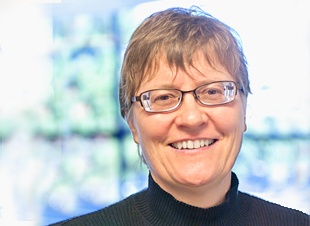About
Student enrollments in CS degree programs are lagging as the demand for professionals in computer science and related disciplines is escalating. Drain from the computer science pipeline starts early: high school students generally lack computer science course offerings and qualified CS teachers. This leads to diminished student interest and a lack of diversity in computer science.
Check out our video!
Watch this video for an overview of what we've done so far and what we have planned for the future.
In response to this national need, the National Science Foundation supported the Into the Loop ![]() computer-science equity project which developed Exploring Computer Science (ECS)
computer-science equity project which developed Exploring Computer Science (ECS) ![]() , an engaging and relevant introduction to computer science for high schoolers with no prior background in CS. SRI, in the PACT suite of projects, developed ways to assess the computational thinking practices—the big ideas that underlie computer science—that students acquire in the ECS curriculum.
, an engaging and relevant introduction to computer science for high schoolers with no prior background in CS. SRI, in the PACT suite of projects, developed ways to assess the computational thinking practices—the big ideas that underlie computer science—that students acquire in the ECS curriculum.
SRI designed and validated the assessments in partnership with the curriculum developers, ECS instructors, assessment experts, and computer scientists. Applying evidence-centered design, we first created generalized design templates for computational thinking practices. Using these templates, we developed assessment tasks and scoring rubrics for the ECS curriculum and piloted them from school year 2013-14 through school year 2016-2017. In our newer work, we used the assessment tasks and other instruments to study factors that influence implementation of ECS as it scales. Our partners in this work were the Code.Org ![]() organization, The Learning Partnership, and AIR, who operates the CS For All Teachers
organization, The Learning Partnership, and AIR, who operates the CS For All Teachers ![]() community.
community.
Broader Impact. The PACT project represents an important part of efforts to fill the computer science pipeline with a more diverse population of students. High-quality assessment tools and resources will lower barriers for adopting and using the ECS curriculum, as well as other CS curricula, and will pave the way to reporting evidence of student progress and readiness to engage in further learning. The PACT project also contributed to NSF's effort to prepare 10,000 qualified computer science teachers (the CS10K project) by providing both new and experienced CS teachers with accessible and adaptable resources for assessing their students' knowledge and skills in computational thinking.



